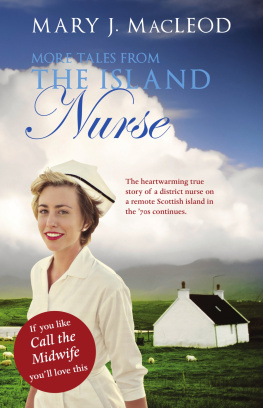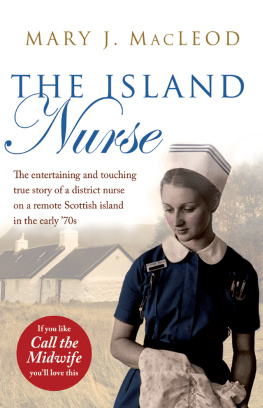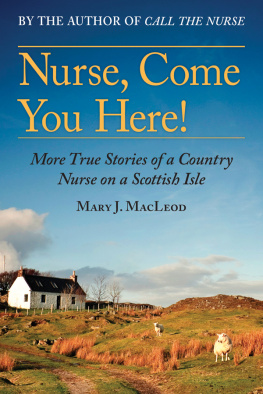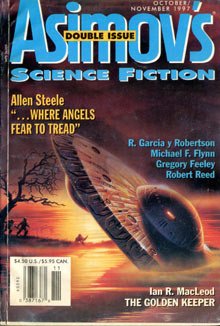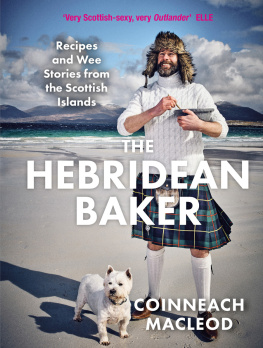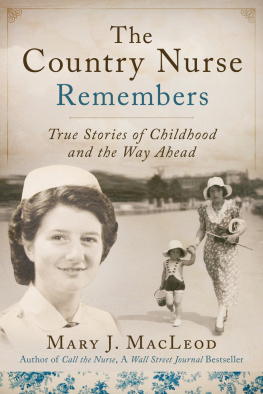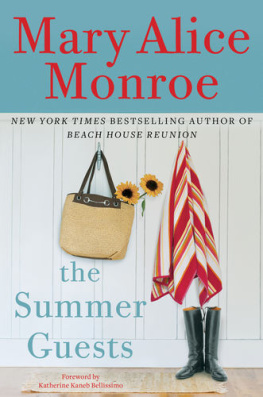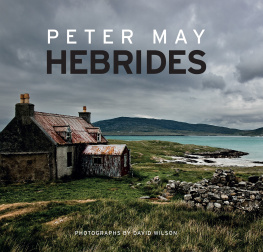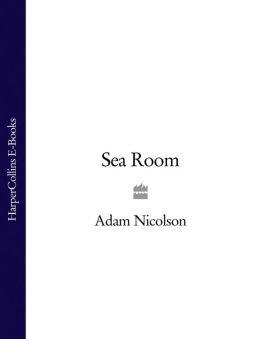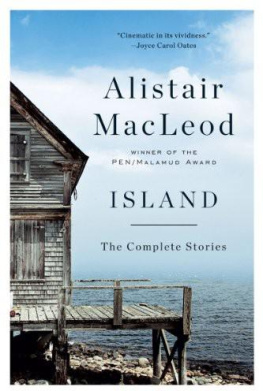MARY J. MACLEOD was born in Somerset, educated in Bath and qualified as a state registered nurse in Bristol. Now retired, she worked as a nurse in Bristol, London, Bedfordshire and the Hebrides. She has four children, five grandchildren and five great-grandchildren and lives in Cornwall with her husband and two dogs.
More Tales from
the Island Nurse
MARY J MacLEOD
Luath Press Limited
EDINBURGH
www.luath.co.uk
First published 2014
ISBN: 978-1-910021-17-0
ISBN (EBK): 978-1-910324-17-2
The authors right to be identified as author of this work under the Copyright, Designs and Patents Act 1988 has been asserted.
Mary J. MacLeod 2014
This book is dedicated to Elizabeth a dear friend.
I thank all those members of my family and my friends who have encouraged me. I thank Andy my techno wizard and the people in the book for just being themselves.
Contents
Prologue
AGAIN AND AGAIN my thoughts return to that happy time spent among the beauty and peace of the islands of the Hebrides.
I remember the warm, unquestioning welcome of the people; the stoicism with which they met the hardships of lives lived in that remote place and the laughter and banter of the ceilidhs in crowded croft house kitchens on cold winter evenings.
I recall the islands unsophisticated children who delighted in the simple things of life: the sheepdog trials, the arrival and departure of the little island plane, the comings and goings at the steamer pier and a school outing to a castle on an adjacent isle.
I knew old folk who had tales to tell of an earlier era; of a time before radio, electricity, planes and cars. Tales of war and the cruelty of the sea, of family and loyalty and stories with no beginning and no ending.
Papavray I need to revisit you in my memories, write once more of the splendour of your mountains and seas and enter again into the lives of your gentle people. I want to revel in the remembered smell of peat smoke curling into the frosty air from tiny white chimneys, to feel the soft rain on my face or to hurry through a storm, head down to the cosy shelter of our home among the hills and glens of that beloved isle.
I shall remember and dream again as I look back over the years.
Introduction
IT IS THE EARLY 1970s and the Macleod family have been on Papavray, a small island off the west coast of Scotland, for over two years now. The island is only twenty miles long and five miles wide with the mighty bulk of Ben Criel keeping watch over the little villages, the glens, the harbour and the rugged coast.
We see again the beauty of this little world with its wild weather and glorious sunsets, its tumultuous seas and snowy mountains and we feel the warmth of the close-knit community.
The nurses duties continue, her husband pursues overseas contracts and the boys grow and enjoy the freedom of this remote location.
Once more, we meet crofters: Archie, Mary and Fergie H; Big Craig, the roadman; Doctor Mac, the island GP; Duncan, the Laird; Elizabeth, the teacher; John, the policeman; Rhuari, our island giant; and Father Peter, who visits again. The nurses first grandchild is born and her parents come for a holiday, strangers turn up on Papavray and crofters tell spooky tales.
But then, quite suddenly, the nurses life changes dramatically and the family leaves the island for new adventures in far-off California and Nevada with their sunshine and their different lifestyles. Spiders, speedboats and silver mines now figure among the mountains and lakes, oceans and swimming pools in those far lands.
From old Sarah to wee Murdo, from a cow in a kitchen to MI6, tears and laughter rub shoulders as life continues on Papavray.
Down in a Ditch
GEORGE AND I sat looking out of the window at the rain lashing down and dreamed of a holiday in the sun. It was about the sixth weary week of almost persistent rain and we were yearning for the warmth of the Mediterranean or the Canaries, where we had been accustomed to holiday before our great escape to the North. These thoughts only surfaced briefly in midwinter, when the days were short and dark and the nights long and even darker and the storms seemingly unending as now and we would experience a sort of cabin fever and long for a holiday.
But then, suddenly, a silver sun would break through Stygian clouds to bathe the sparkling slopes of purple mountains, and touch the sea to create restless pathways of golden water. The wind would drop and we would stand in awe of the sensational and enduring beauty in which we were privileged to live. We would wonder just why we had fancied the six or seven hundred mile journey to Heathrow or Gatwick, a wait of x-number of hours in a crowded, stuffy airport, the cramped and uncomfortable flight with the very real possibility of the loss of our luggage and the press of dozens of angry, pushing, perspiring folk (perhaps also minus luggage) in blistering heat. Why would we do this?
Why? Here, we could wander unhurriedly in the clear air, and watch the shafts of sunlight weave between the peaks of the mountains until a golden day faded into a shining evening. Then pink and orange streaks would appear in a silver-blue sky and soft mist would begin to obscure the hills so that only their tops showed, seeming to float in the heavens. Then we were content, once more, only to leave our hallowed isle for the briefest of times. After all, we had a warm, welcoming home in a superb location with incredible views, in a friendly village on a glorious island! What more could we want?
The boys were happy in the island culture, with outdoor pursuits and the freedom to learn the lessons of life as well as more academic ones. They knew folk of all ages: the differences did not seem important. Nick was now old enough to join the sailing club and was accepted by the young lads and the older men. He fitted in wherever he went. But he was not a good scholar: I think, perhaps, he loved the outdoor life and the freedom too much and gave little thought to the future. Papavray only had work of the manual kind, and no apprenticeships. School leavers with high grades usually got into college or university but further education did not look as though it would be an option for Nick. But he loved the sea and had met a deep-sea diver who was prepared to take him on at weekends and possibly train him for a job on leaving school. I was alternately horrified and relieved! It was undoubtedly dangerous, but at least he had found a very real interest which might prove useful later I hoped.
At Andys age, there were no such worries. He was happy at school, with his friends and with Nick. They still fished and climbed and messed about in boats. In Andys case, the worries of the wide world were still a long way into the future.
I enjoyed my work as the district nurse. I liked caring for the elderly, tending children, advising mothers, dealing with injuries, illnesses, emergencies and generally being part of the fabric of the island. Consequently, I was welcomed into the homes and lives of the islanders in an affectionate and, perhaps, unique way.
George, the only true Scot among us, was the one who was not entirely content. He was happy to be on his mother-isle, of course, but found the pull of the exciting overseas jobs, that he was called upon to do from time to time, irresistible. Our original intentions had not included such things, but had centred on local or semi-local work and there was plenty of that. But he enjoyed the challenge of the more sophisticated work abroad. And, inevitably, the weather just now was adding to his impatience to get away on the next contract and I, too, was so fed up that I almost envied him.

